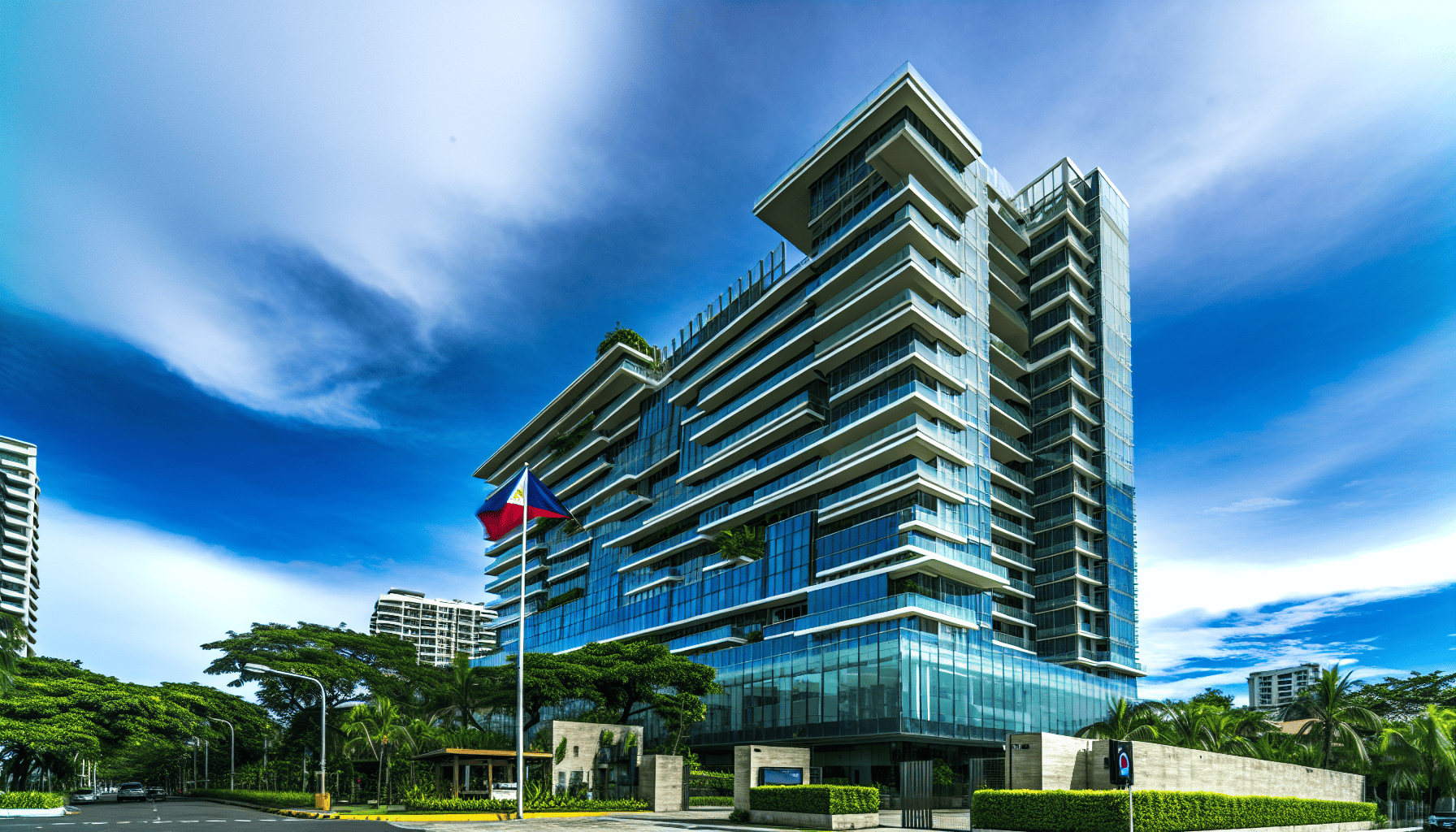Can Foreigners Buy Property in Philippines? A Comprehensive 2024 Guide for Investors
Can foreigners buy property in Philippines? While direct land ownership may not be possible, the door to buying property here is open for investments in condominiums or through corporate structures. This guide outlines the ways you can navigate these prospects, ensuring you’re well-armed with the necessary legal knowledge for your property venture, especially when it comes to the question, “can foreigners buy property in Philippines?”
Want to Rent, Lease, or Buy Your Dream Home in the Philippines? We have Real Estate Expert whose speciality is working with Foreigners to make their dreams come true. Click Here
@toddofthejungle Real Estate Tips…
Key Takeaways on Can Foreigners Buy Property in Philippines
- Foreigners cannot directly own land in the Philippines but have various alternatives such as leasing, condominium ownership, or corporate ownership with certain restrictions.
- Condominium units can be owned by foreigners as long as they do not exceed 40% of the project’s total unit ownership, offering a straightforward real estate investment opportunity in the Philippines.
- Due diligence and seeking legal and tax advice are critical in the property acquisition process to ensure compliance with local laws and successful transactions for foreign investors.
Understanding Foreign Property Ownership in the Philippines

The Philippines offers a plethora of opportunities for foreign real estate investors. Grasping the intricacies of property ownership in the country is imperative. While there are restrictions on land ownership, the country’s flexible laws provide various ways for foreigners to own their real estate properties.
Be it a high-rise condominium unit in bustling Quezon City or a tranquil plot of rural land in the lush countryside, being aware of your options could pave the way to your dream property in the Philippines.
Land Ownership Restrictions
In the Philippines, land ownership is a privilege primarily reserved for Filipino citizens. Foreigners, generally speaking, are not allowed to own either residential land, or agricultural land here. However, it’s not all doom and gloom. There are exceptions to this rule that make it possible for foreigners to own agricultural and urban land, here indirectly.
One such exception is the case of former natural-born Filipinos. Even if they have lost their Philippine or foreign citizenship, or have acquired foreign citizenship, they still have the right to own property title to private land for both residential and business purposes. They can own land title if:
- urban land up to 1,000 square meters for residential use
- rural land up to 1 hectare for residential use
- urban land up to 5,000 square meters for business use
- rural land up to 3 hectares for business use
Although direct foreign ownership of land is limited, the Philippines provides alternative routes for foreigners to own land indirectly.
Real Estate Ownership Options
Now, you might be wondering, “What if I’m not a former Filipino citizen?” Well, the Philippines still offers a variety of real estate ownership options for foreigners. The Condominium Act of the Philippines, for instance, allows foreign nationals to own a condominium building or units in any condominium project, as long as the foreign national ownership does not exceed 40%. This makes condominium ownership the most straightforward route for foreigners to own property in the country.
In addition, foreigners can acquire property in the Philippines through the following options:
- Lease land for long-term use, providing a feasible alternative to direct land ownership.
- Acquire property through marriage to a Filipino citizen.
- Set up a local corporation where foreign ownership does not exceed 40%.
Each of these options presents its own set of benefits and considerations, so it’s crucial to understand them to make an informed decision.
Condominium Ownership for Foreigners

Condominium ownership is the most popular and easiest way for foreigners to own property in the Philippines. Thanks to the Condominium Act, foreigners can enjoy a piece of the Philippine real estate market. However, like any investment, it’s important to understand the legal requirements, as well as the advantages and disadvantages of the foreign investment act when owning a condominium unit.
Legal Requirements
What, then, are the specific prerequisites for foreigners to own a condominium unit in the Philippines? As per the Condominium Act, foreigners can own condominium units as long as foreign ownership in the condominium corporation or condominium project does not exceed 40%. This protects the interests of Filipino citizens, while still allowing foreigners to invest in the country’s booming real estate market.
For compliance, it is essential to confirm that the full sales price, purchase price, and percentage of units owned by foreigners does not exceed the limit. It’s also important to have a valid visa and necessary documents such as the Condominium Certificate of Title. While this may seem daunting, rest assured that many condominium corporations and real estate agents are experienced in assisting foreign buyers through the process.
Advantages and Disadvantages
While owning a condominium unit in the Philippines has its perks, it also comes with its share of challenges. One of the main advantages of condominium ownership is the access to shared amenities, such as swimming pools, fitness centers, and security services. Additionally, the ease of maintenance is a major plus, particularly for foreign investors who do not reside in the Philippines full-time and opt for condo units.
However, condominium ownership also comes with fees and potential usage restrictions. Condo fees, for instance, can add to your monthly expenses. These fees are used for the maintenance and repair of common areas, which are typically managed by the same condominium corporation or owners association. Despite these potential drawbacks, many foreigners find that the benefits of condominium ownership outweigh the disadvantages.
Leasing Land for Long-Term Use

Another viable option for foreigners is leasing land for either long term leases or-term use. While this does not provide outright ownership, it does allow foreigners to utilize real estate for extended periods. This can be particularly appealing for those looking to establish a business or residence in the Philippines without the commitment of ownership.
Let’s delve into the specifics of lease agreements and the possibilities of building on leased urban land now.
Lease Agreement Terms
In the Philippines, foreigners can lease land for up to 75 years, starting with an initial term of 25 years and an option to renew for another 25 years. This offers foreign lessees a significant amount of time to fully utilize and benefit from the land.
The terms and conditions of the lease, including rental payments and other provisions, are usually negotiable between the lessor and the lessee. Whether your plan involves opening a business or building your dream house, a long-term lease can offer the stability and security essential for your investment.
Building on Leased Land
You’ve leased a beautiful piece of rural land. What’s next? Well, the good news is that you can build structures on the leased land. This offers a great deal of flexibility, whether you’re interested in setting up a business acquire residential land or constructing a residential property.
Adhering to local regulations and the terms of the lease agreement is, however, critical. Failing to do so can lead to legal consequences, such as eviction or breach of contract. Moreover, it’s important to note that any structures built on the land are subject to the terms of the lease agreement. At the end of the lease term, you risk losing your investment in the structures unless you can negotiate a new lease agreement.
Property Acquisition through Marriage

For those foreign citizens who have found love in the Philippines, property acquisition through marriage is another option to consider. A foreigner legally married to a Filipino citizen has the ability to purchase land, or acquire real estate property although it must be registered under the Filipino spouse’s name. Let’s discuss the specifics of property ownership rights and the potential risks and considerations associated with this method.
Property Ownership Rights
When purchasing property through marriage, the property is registered under the name of the foreigner married to the property owner or Filipino spouse. Although this may appear restrictive, the foreigner married foreign spouse can still exercise control over the property through a mutual understanding or agreement with the Filipino spouse.
In the event of the Filipino spouse’s passing, the foreign spouse has the right to inherit the property. However, if the foreign spouse passes away without a will, a legal or natural heir, the property will be subject to the Philippines’ laws of intestate succession and will be inherited by the legal heirs. This underlines the importance of proper estate planning to ensure the smooth transition of property.
Risks and Considerations
Property ownership through marriage comes with its own set of risks and considerations. One major concern is the potential for disputes in the event of divorce or separation. In the Philippines, divorce is not recognized, and property disputes can become complex and lengthy.
Another consideration is the potential for disputes in the event of the Filipino spouse’s death. The property may be subject to claims from other relatives, leading to potential legal battles. Therefore, understanding the risks and considering all possible scenarios becomes crucial when planning to acquire property through marriage.
Corporate Ownership of Land

If direct ownership or leasing doesn’t fit your needs, there’s another route to owning property in the Philippines: corporate ownership. This involves establishing or investing in a local corporation, allowing foreigners to indirectly own land in the country. While this method offers a viable solution to foreign ownership restrictions, it comes with its own set of limitations and risks.
Setting Up a Local Corporation
Establishing a local corporation might be a lengthy process, but it paves the way for foreigners to indirectly own land in the Philippines. The corporation must comply with local regulations, including land tax declaration and the requirement that at least 60% of the ownership must be held by Filipinos.
The process of registering a company involves several steps, including:
- Registering the company name with the Securities and Exchange Commission (SEC)
- Obtaining a Barangay Clearance
- Acquiring a Business Permit from the Mayor’s Office
- Depositing the paid-in minimum capital at the bank
While this might seem daunting, many businesses have successfully navigated this process, and professional assistance is readily available.
Limitations and Risks
While corporate ownership offers an alternative to direct ownership, it’s not without its limitations and risks. For one, the corporation must comply with local regulations, including the requirement that at least 60% of the majority ownership must be held by Filipinos. Failing to comply with these regulations can lead to penalties and even criminal sanctions.
Another risk is the potential forfeiture of the property if the corporation is dissolved. When a corporation is dissolved, the land it owns can be sold, and the resulting cash will be distributed among the shareholders, including foreign shareholders within the legal ownership limit. This highlights the importance of understanding the laws and regulations associated with corporate ownership before embarking on this path.
Inheritance and Succession Laws
The Philippines also allows foreigners to acquire property through inheritance transfer tax. However, the inheritance transfer tax and succession laws in the country can be complex, especially for foreign nationals.
It’s important to understand the inheritance rules, tax implications, and fair market value associated with this method of property acquisition.
Inheritance Rules
According to Philippine law, foreigners, if they are legal or natural heirs, can inherit property. This aligns with the rules of either hereditary succession or intestate succession and allows foreigners to acquire property through inheritance.
However, there are limitations to this rule. In the final will, it is legally stated that a foreigner without any connection to the landowner cannot be designated as the natural heir to inherit the the land title. This requirement ensures that only individuals with a specified relationship to the landowner can be named as heirs. It’s crucial to understand these rules to navigate the process of inheriting property in the Philippines.
Tax Implications
Moreover, inheriting real estate taxes or property, estate taxes or property anywhere in the Philippines carries certain tax implications, including real estate tax. For instance, the current estate tax rate in the Philippines is six percent (6%) of the net estate. There are also exemptions and deductions available from the estate tax, such as estates worth PHP 5,000,000 or below.
When an inherited property is sold, the selling heir is also required to pay capital gains tax. It’s important to understand these capital gains tax implications and comply with all necessary payments to avoid penalties and legal issues.
Navigating the Property Buying Process
Finally, whether you’re buying a condominium, leasing land, or acquiring a real estate property through marriage or corporate ownership, it’s crucial to navigate the property buying process with care. This involves conducting due diligence and seeking legal and tax assistance to ensure a smooth and successful transaction.
Due Diligence
Executing due diligence forms an integral part of the property buying process. This involves verifying the ownership of the property, checking property documents, and assessing the conditions of the property. These steps help verify the legitimacy of the transaction and prevent potential legal complications.
To carry out due diligence, you’ll need to scrutinize real estate-related documents, conduct due diligence on the seller and the land, and verify property titles at the Registry of Deeds. While this might seem like a daunting task, many real estate agents are experienced in assisting foreign buyers through the due diligence process.
Legal and Tax Assistance
The process of buying property in the Philippines can pose complexities, particularly for foreign nationals. This is why seeking legal and tax assistance is highly recommended when buying property here. Legal and tax professionals can guide you through the property buying process, ensuring compliance with local laws and regulations and helping you navigate the complex landscape of Philippine real estate.
Potential legal considerations to keep in mind include the payment and documentation of taxes and fees, such as the documentary stamp tax, capital gains taxes, transfer taxes, and title registration fee fees. By seeking professional assistance, you can ensure that all these aspects are taken care of, allowing you to focus on the exciting prospect of really owning land and the real property here in the Philippines.
Summary
The journey to owning property in the Philippines as a foreigner may seem daunting, but with the right knowledge and assistance, it’s a journey well worth taking. Whether through condominium ownership, leasing, marriage, or corporate ownership, there are various pathways to owning property in this tropical paradise. Remember, due diligence is key, and seeking legal and tax assistance can make the process smoother and more manageable. Happy property hunting!
Frequently Asked Questions
Can a US citizen buy property in Philippines?
Yes, a US citizen can own a residence in the Philippines, but cannot own the land it is built on. Options include purchasing a property through a corporation or by owning land via a long-term lease agreement with a Filipino landowner.
Can foreigners own land in the Philippines 2023?
Foreigners cannot own land in the Philippines, but they can own buildings or condominium units. Long-term lease agreements with landowners are a possible option to buy property here for foreign citizens or to buy property for those wishing to reside in the country.
Can a foreigner buy a condo in the Philippines?
Yes, a foreigner can buy a condo in the Philippines under the provisions of the Philippine Condominium Act, as long as 60% of condo units in the condominium building is owned by Filipinos.
How much is a house in the philippines?
The average house sales price in the Philippines is approximately $1,334 per square meter, with normal houses priced between $63,000 and $90,000, although property prices, depending on various factors.
What is the maximum lease period for foreigners in the Philippines?
Foreigners can lease properties in the Philippines for a maximum period of 50 years, with an option to renew for an additional 25 years. Consider this when planning a long-term lease in the country.
Sources: https://en.wikipedia.org/wiki/Category:Real_estate_in_the_Philippines



